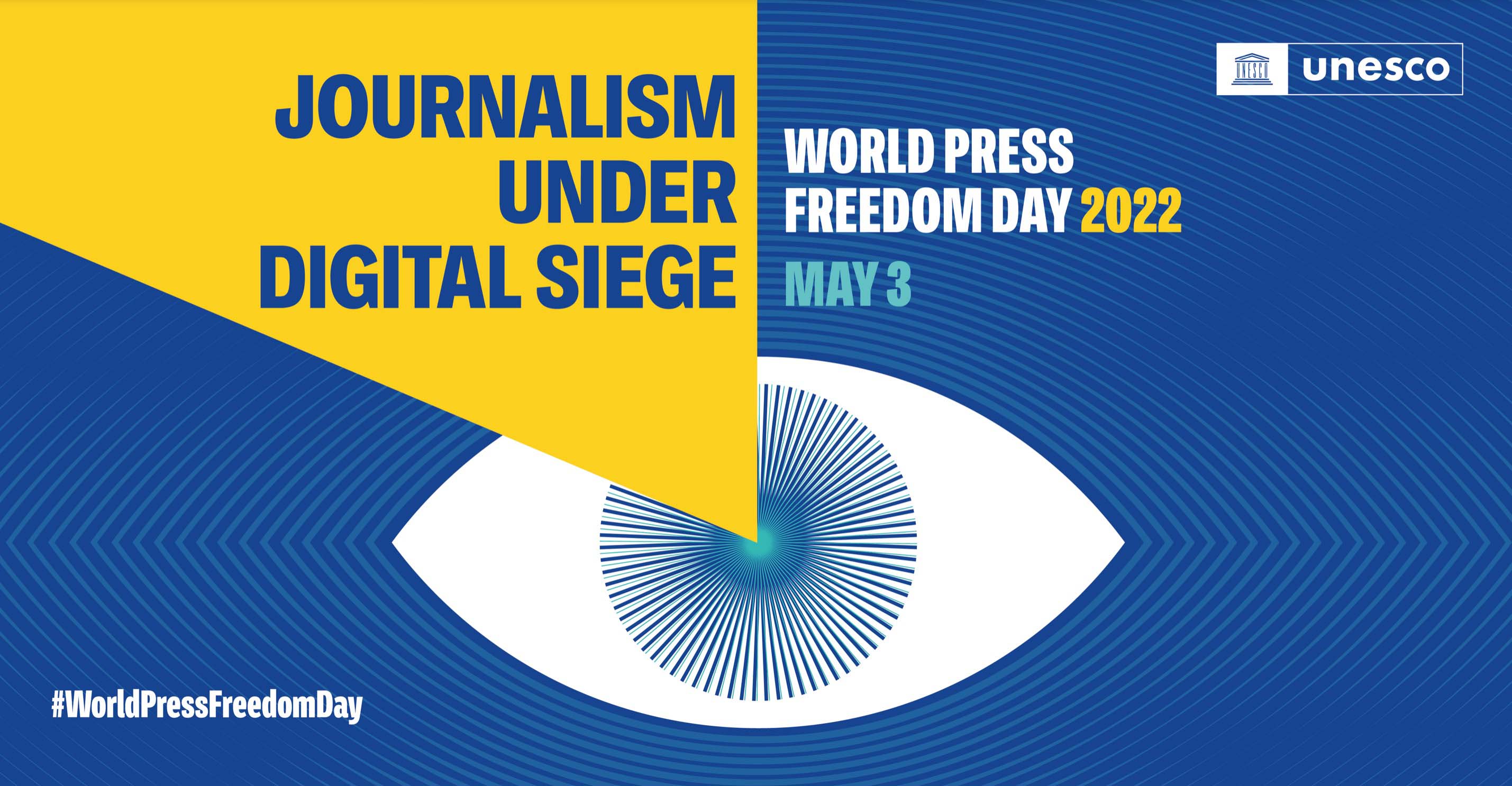UNESCO’s World Press Freedom Day on May 3 was mentioned in social media 273,000 times and seen many times more, according to an analysis by the Social Media Insights Lab at the University of South Carolina in the United States.
The lab used powerful Brandwatch Consumer Research software to analyze the comments, which were made in 93 different languages. According to Twitter, World Press Freedom Day posts received more than seven billion impressions on that platform. (Impressions are a metric supplied by Twitter that predict how many times posts are seen.)
Key themes included the significance of the day itself, threats facing journalists and the importance of accurate information.
“At a time when journalism is under siege, it was interesting to see the similarity of opinions worldwide on these critical issues,” said Sarah Johnson, Insights Lab manager. “Almost 36,000 posts mentioned Julian Assange, the founder of WikiLeaks who is in British custody and facing extradition to the U.S. on espionage charges.”
With 7,495 mentions, @UNESCO was the most-tagged Twitter account. Other notable organizations mentioned frequently were Amnesty International, the Committee to Protect Journalists and Human Rights Watch.
Comments came from a cross section of society. Notable posts were made by Pope Francis, Canadian Prime Minister Justin Trudeau and White House Press Secretary Jen Psaki.
The top author among the day’s Twitter posts was Priyanka Chaturvedi, a member of India’s Parliament who criticized India’s low ranking on the World Press Freedom Index. The post had the greatest impact or engagement among those sampled, according to Brandwatch.
World Press Freedom Day this year was a big topic of conversation in India. There were more posts in India than in any other country.
One indication of the importance of World Press Freedom Day in India is that five of the top ten posts worldwide came from that country.
The largest percentage of posts were in English (72 percent). Spanish (11 percent) was a distant second.
The Brandwatch software also captures and ranks emojis. The one used most often showed hands clasped in prayer.
To conduct the survey, the lab looked at posts made between noon, May 2, and noon, May 4, using search terms in six languages: English, Spanish, French, Russian, Chinese and Arabic. Most of the comments surveyed came from Twitter (94 percent) with 5 percent coming from news mentions and 1 percent from Reddit.
The U.N. General Assembly proclaimed the first World Pres Freedom Day in 1993. Each year since on May 3, UNESCO has used the day to celebrate the fundamental principles of press freedom, to evaluate press freedom around the world, to defend the media from attacks on their independence and to pay tribute to journalists who have lost their lives in the exercise of their profession.
About the Social Media Insights Lab
The lab is part of the College of Information and Communications. It is used for teaching,
academic research and public reports intended to help people better understand issues
of the day.
View a full list of reports and follow the lab on Twitter at @UofSCInsights.
